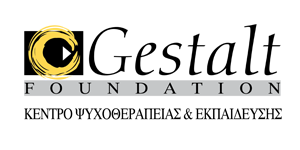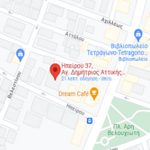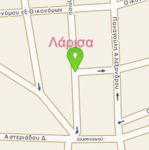- Silvia Tosi, Why we need Training standards in Gestalt: rules and creativity in a changing world? (coordinator and presenter)
- Elena Lasaja, How to support vitality and competences of trainers in this changing world? (presenter)
- Jevgenyij Kolesznyikov, Possibilities and risks of online training, supervision and therapy (presenter)
- Jack van Liesdonk, My avatar says I am healthy but I feel awful. Differences between standards and contact in the postmodern world. (presenter)
- Despina Balliou, " The whole is greater than the sum of its parts" Aristotle. Can we measure the quality of a training program? Let's challenge the training criteria. (presenter)
Duration of the communication: (10-15' for questions).Technical needs: NOCommunication language: Spanish / EnglishProvide translation: YES
EAGT Training standards committee proposes a round table for everyone who is involved in the training processes to discuss together.
EAGT is an association of members that recognize themselves in certain fundamental principles.
The aims of the EAGT are to assure quality standards of their members. In this way is an international common ground created to operate on. The common ground is created by setting professional standards in ethics, in the competences of gestalt therapists, in the way gestalt therapists and supervisors are trained, and so on.
In a circle of colleagues, we propose the discussion of these actual questions.
- Why we need Training Standards in Gestalt: rules and creativity in a changing world
How to live between the polarities in society like risks and looking for stability. There is an insecurity to go into a process of many years of gestalt training.
Motivation to be part of and participate in the EAGT community can offer some certainty by the feeling of belonging.
Training Standards in Gestalt are an effort to bridge the gap between freedom of art, anarchy and individuality on one hand and regulations, guarantee and safety on the other. It is an effort to bridge the gap between creativity and adjustment to the requirements of the health care market.
- How to support vitality and competences of trainers in this changing world?
- Possibilities and risks of online training, supervision and therapy.
After covid-pandemic we meet more and more online projects in gestalt communities. These events are connecting and disconnecting at the same moment. And what about training standards? How should they develop because of online spread? Could we imagine a gestalt-therapist that never meets clients face-to-face? Could classical training in the room without online skills be enough in contemporary reality? Are hybrid groups the groups? Could training be fully online? Is online therapy a new profession? Should we keep the boundaries or be sensitive to what is born?
- My avatar says I am healthy but I feel awful. Differences between standards and contact in the postmodern world.
- " The whole is greater than the sum of its parts" Aristotle. Can we measure the quality of a training program? Let's challenge the training criteria.
Hours of theory, hours of therapy, hours of supervision and so on!
Just additions? Are additions of specific training standards, like hours, exams and papers sufficient enough to ensure the quality of a training program?
Beyond additions, there are multiplications, substructions, divisions of variables in situation, mutually interacting and influencing the quality of a reliable and effective training program.
Let’s challenge the criteria by raising a fertile dialogue around them.
References:
https://www.eagt.org/joomla/index.php/2016-02-25-13-34-32/trainings-standards-committee
Key words:
Gestalt, Training Standards, Creativity, Professional Standards, Transformation
CV
Silvia Tosi, Clinical Psychologist, Gestalt Therapist and Supervisor (accredited by the EAGT). International trainer at the Istituto di Gestalt HCC Italy. Chair of the Training Standards Committee and member of the Executive Committee, EAGT. Member of the Editorial Board of Quaderni di Gestalt, Franco Angeli Editore and of the Gestalt Therapy Book Series, Routledge
Elena Lasaja,
Jevgenyij Kolesznyikov, M.D. - psychiatrist, EAP accredited gestalt-therapist, EAGT supervisor and officer of Training standards and Research committees, trainer, director of Međunarodni Institut za Geštalt (MIG), Montenegro.
Jack van Liesdonk,
Despina Balliou, B.Sc. Psychology, M.Sc. Counseling Psychology, Gestalt psychotherapist, trainer and supervisor, founding member of the “Gestalt Foundation” Psychotherapy and Training Center – Greece, member of EAGT’s Training Standards Committee, co-author of the book "Introduction to Gestalt Psychotherapy - Basic Concepts, Principles and Applications" (2011).






